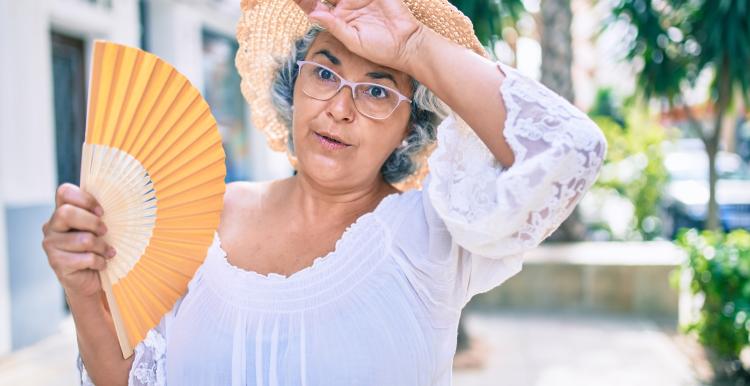Staying cool and safe in hot weather

In England, approximately 2000 heat-related deaths occur annually on average. As the summer season approaches, it is vital to safeguard yourself and those around you from the potential dangers of hot weather. While anyone can be affected by the heat, certain individuals face a higher risk. Older people and people with existing health conditions, along with those who have difficulty in staying cool or adapt to hot weather are most vulnerable to the health risks associated with summer heat.
As our climate changes, hot spells are becoming more frequent and intense. That's why it's crucial to be prepared and informed on how to cope with the heat. Let's look out for each other and take the necessary steps to stay safe and comfortable during those scorching summer days!
Tips for coping with hot weather
- look out for those who may struggle to keep themselves cool and hydrated – older people, those with underlying health conditions and those who live alone are particularly at risk
- close curtains on rooms that face the sun to keep indoor spaces cooler and remember it may be cooler outdoors than indoors
- drink plenty of fluids and avoid excess alcohol
- never leave anyone in a closed, parked vehicle, especially infants, young children or animals
- try to keep out of the sun between 11am to 3pm
- walk in the shade, apply sunscreen regularly and wear a wide brimmed hat, if you have to go out in the heat
- avoid exercising in the hottest parts of the day
- make sure you take water with you, if you are travelling
- if you are going into open water to cool down, take care and follow local safety advice
Who's most at risk?
A heatwave can affect anyone, but the most vulnerable people are:
- older people, especially those over 75
- those who live on their own or in a care home
- people who have a serious or long term illness
- those who may find it hard to keep cool – include babies and children, bed-bound individuals, people with disabilities or mobility impairments, individuals with drug or alcohol addictions, and those with Alzheimer's disease or other forms of dementia.
- people who spend a lot of time outside or in hot places – those who live in a top floor flat, the homeless or those whose jobs are outside
Check for signs of heat exhaustion
The signs of heat exhaustion include:
- a headache
- dizziness and confusion
- loss of appetite and feeling sick
- excessive sweating and pale, clammy skin
- cramps in the arms, legs and stomach
- fast breathing or pulse
- a high temperature of 38C or above
- being very thirsty
The symptoms are often the same in adults and children, although children may become floppy and sleepy.
If you have concerns about an uncomfortably hot house that's affecting your health or someone else's, get medical advice. You can also get help from the environmental health office at your local authority. They can inspect a home for hazards to health, including excess heat.
For more information visit GOV.UK: Heatwave Plan for England.


